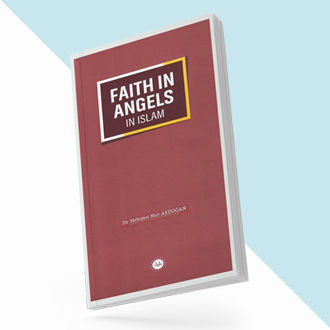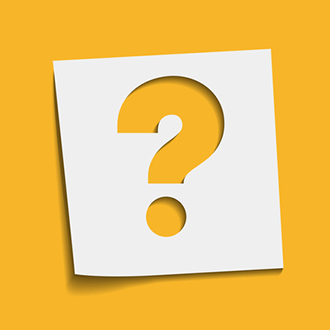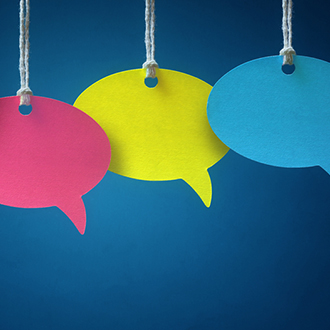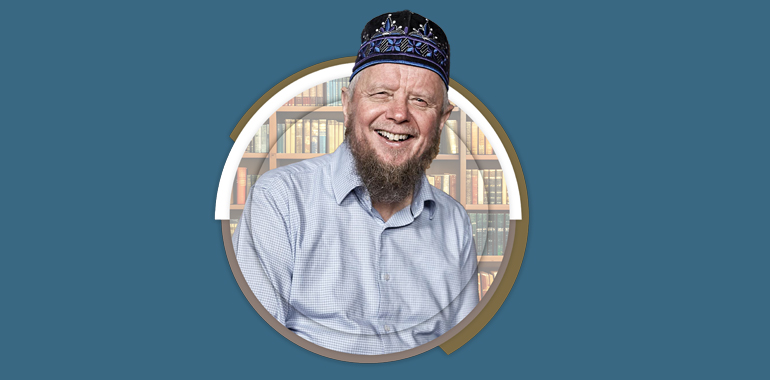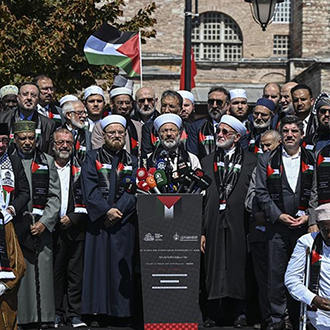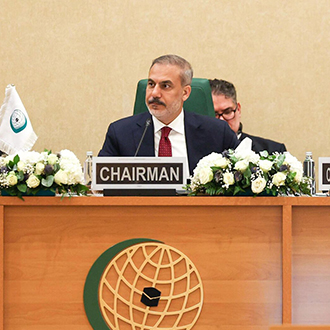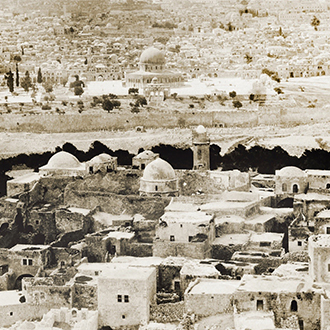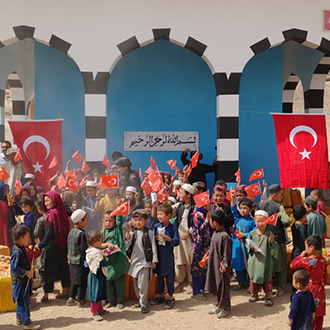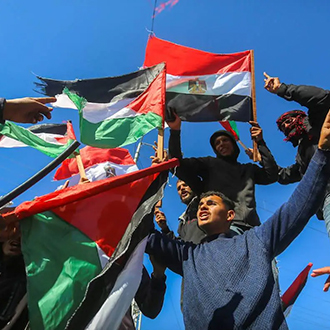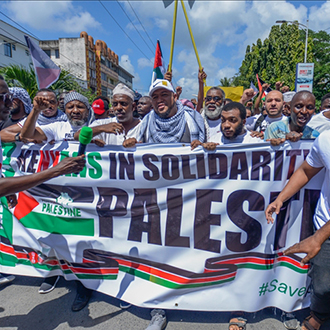Abdul Wahid Reino Arild Pedersen converted to Islam in 1982, aged 28. He was Vice-President of Muslims in Dialogue in the early years of the organisation’s existence. Muslims in Dialogue is a Danish Muslim, multiethnic organisation that introduced Islam to Danish society. He was cofounder and principal of three Muslim schools. He was the founder of what has today become the largest Muslim charity organization in Denmark, called Danish Muslim Aid. A graduate of the Ethnographic Museum at Aarhus University, he has translated numerous books on Islam into Danish. He pioneered the establishment of many civil societies, including the Danish Muslim Joint Council and the Christian-Muslim Research Centre, and contributed to them. He has published a book entitled Islam på Jysk.
My name is Abdul Wahid Reino Arild Pedersen. The first two names I was given when I became Muslim. The third name is from Finland, as that was my mother’s country of origin. The fourth name is a very old Danish name. And the last is my family name. By the endless blessings of Allah, I was guided to Islam in 1982 at the age of 28 years after having been brought up as a Christian and later having embraced Hinduism and followed that path for about 4 years. Finally, Allah opened my eyes to Islam after a long search, and by His immense blessings, He let me see the light. He literally took me from a way of darkness to a way of light. Before becoming Muslim, I earned my living as a rock-and-roll musician, and it was my belief that I should remain in that trade for the rest of my life. But Allah had other plans for me.
Ever since I was a child, I was a believer, but I was not sure how to understand my belief or how to understand the concept of God. In my tender youth, I asked so many questions within myself about God that I decided to resign from the Danish church, to be free to do my research and find my real place in the spiritual realm. It seemed to me that as long as I was a member of a specific religion or tradition, I was inhibited from searching freely. This led me initially into a period without any religion, during which I reached a kind of preliminary conclusion, which I believed, that there was some kind of force ruling everything in existence. This belief came from the fact that a drawing of a solar system or an atom basically looked alike. We are here talking about some time in the 1970s when the smallest object known was the atom. But for me, the observance that the micro-cosmos and the macro-cosmos were so similar was a clear indication that there had to be some kind of driving force behind it all. So, I left it at that, accepting this as my “religion”. At that point, I was not yet ready to say God, as I was deeply influenced by the common European notion that you just don’t talk about God, but rather about a force or a power or something like that.
When I was 21, I left Denmark to explore the world. I still was not a member of any religion as such, but nevertheless a believer. During lengthy travels in Africa and Asia, I met people of all different walks of life and all different religions, which again set me off on my personal quest to find my exact place. I noticed that in all the religions, there seemed to be a lot of “common ground” and some differences. I imagined a mountain where a spring gushes forth at the top, and rivers run down the side of that mountain from the same source. The rivers were the religions, and I was at the base of the mountain, from where I could deduce that in some rivers something had been added, whereas something had been removed in others. So I decided to try to follow a religion to see if I could work my way back to the source that way. Thus, I became a Hindu as I was in India at that time, and that seemed to be the most convenient path to take. I got myself a guru (teacher) and went for pilgrimages to holy sites in India and made my prostrations to cows, monkeys, and statues. I also abolished all my worldly belongings, as one way within the Hindu path consists of doing exactly that. I had no money, no return ticket, and was left only with my passport and some simple clothes. Not even a pair of shoes. This experience made me realize that even without any worldly belongings, I was perfectly happy and content, and I even got food from time to time.
After returning to Denmark, I eventually quit Hinduism again, as I matured into a stern belief that God is absolutely only one and cannot be understood in any other way. Following the Hindu tradition, there are so many deities that you must approach in order to get what you want. From one, you get wealth, from another strength, and another again could give you “brains”. Moreover, many more than this, of course. This eventually made me rethink my position, and one day, like out of nowhere, I realized that I believe in only one God, and that all religions come from that one source (God Himself), and that if I truly wanted to find my way, I had to start asking God. Thus, I did so from time to time, but normally only after I had satisfied all my own whims and wishes. Basically, that meant maybe once a month for 10 to 15 minutes. I would ask God: If you are there, you know me. You can hear me. You can see me, and You know my needs. I know nothing. I have travelled half of the world, and I have tried in so many ways to find you, but I am still only on square one. Now, You must come to my rescue, because otherwise I will be totally lost.
Can you tell us when and why you started to ask yourself questions about your beliefs?
I have probably been around 13 or 14 when I started questioning my own beliefs. Not questioning whether I was a believer or not, because I never had any doubt about that. But rather questioning the concept of God that I had been taught, which was the Christian trinitarian belief.
What were your thoughts on Islam at the time? Have you ever heard about it?
In my youth, I knew absolutely nothing about Islam. There were no Muslims in Denmark, or at least so few that they could probably not even amount to 100.
What was your breaking point when you decided to become a Muslim?
In May 1982, after I had left Hinduism, I was visiting some old friends in Copenhagen. A Danish, a Norwegian, and a British man. All of them convert. I had a wish to pray, and I would occasionally pray, but far too little.
The first night in the company of these three young men, they got up to pray Fajr, which is about 02.30 AM at that time of the year in Denmark. That was such a wake-up call for me, because I realized that if I truly wanted something from God, this would be the way to do it. Get out of bed in the middle of the night and ask.
And here I was confronted with these guys getting up to pray in the middle of the night. I knew that if I wanted anything from God, this would be the way to ask. So I asked them if I could join their prayer, to which they agreed. I did my best to wash, as they washed, and to follow their movements in prayer. Afterwards, they asked me why I would pray and to whom, so when I told them about my beliefs in one God, etc., they smilingly told me that all of that was Islam, and that the Qur’an was the word of God. It was there free of charge, and it only required that I start learning Arabic if I wanted to read it in its original form. For me, this was extremely important, as I had met so many charlatans on my travels, who said that they had all the answers for all the important questions, but they all wanted money before they would talk. Thus, I knew that the eternal truths that I was searching for couldn’t be sold as a commodity, and here I was being told that God Himself was speaking through the Qur’an. So there was only one option for me. I became Muslim, and that has been my way of life ever since. Alhamdulillah.
How did your close circle react to this?
My family was at ease with my decision. In the early 80s, Islam was considered exotic and mystic in Europe.
What advice would you give to someone who has embraced Islam?
Islam is understood in hundreds of ways around the planet. Prophet Muhammad, may the choicest blessings of Allah and peace be upon him, said that his people (ummah) would never stand in agreement on something wrong (or said in another way, the majority will most often stand on the right position). So seek out the majority community and take from them, but don’t ask everybody. Find one or two trustworthy people whom you can lean upon and get your answers.
Learn things as fast as you can, but do not despair because you don’t learn it all at once. There is a lot to learn, and it takes time. Even after many years of learning, you will still find new depths of knowledge to dive into. Enjoy the travel and be steadfast with your prayers. Finally, understand that Allah understands you even better than you understand yourself.
What do you find most admirable about Islam?
That is very hard to answer, because it is all nice. Islam is a clear route to follow. Compare it to a map. If you want to drive from Berlin to Istanbul, you will need a map to make sure to catch the right turns all the way down there, and you will possibly never get there if you just follow your own gut feeling. Traveling the way of life is a lot more complex, and without a good map, your chance of reaching your goal is extremely slim.
What impressed you the most about the Prophet Muhammad, who is the Messenger of Mercy (saw)?
Again, it is very difficult to answer. The more you study his life, the more you love everything about him. He (saw) truly is the towering light in a world full of deception.
